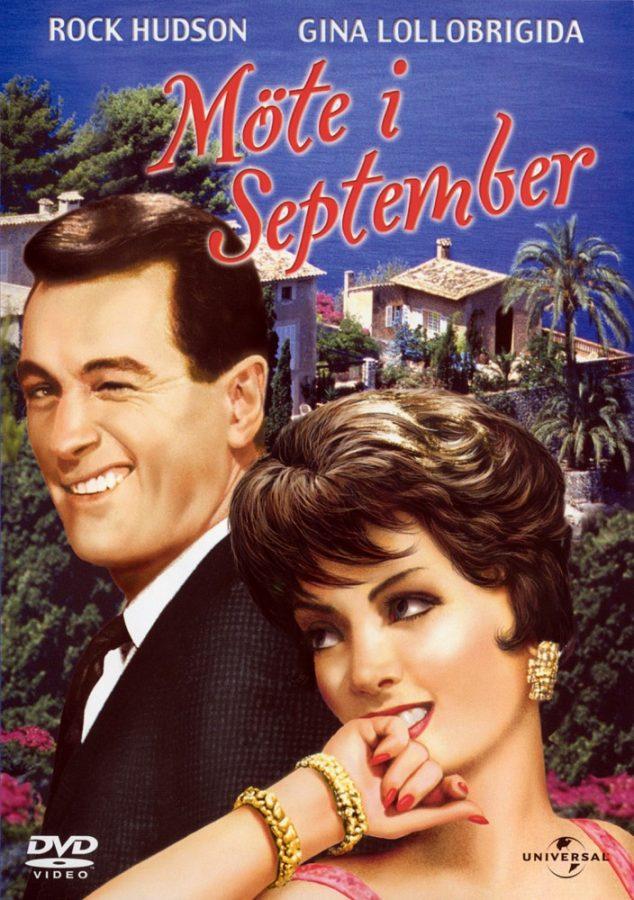Formulaic films are the narratives that have been rehashed, recast and released through the years in a vain effort to find new angles. Films long forgotten from the golden age of Hollywood featuring surprisingly similar themes as recently released films can be viewed by a younger generation who might otherwise not give these a chance. If nothing else, watching old movies will finally give you something to distract your grandparents when they ask about your spring break.
If you like “The Vow” (2012) with Channing Tatum and Rachel McAdams, give this cinematic and romantic tale of amnesia a whirl.
“Random Harvest” (1942) transformed the perils of World War I French chemical warfare into the strangest romantic device. Ronald Colman is “John Smith,” an English officer gassed in the trenches and institutionalized for memory loss and shell shock.
Smith meets and marries Paula (Greer Garson), an adequate singer who lives with him in a cottage near an apple blossom tree with long branches that thoroughly annoy Smith. Because Smith hadn’t been through enough, he is hit by a taxi, regains his prewar memory, and reunites with his aristocratic family, having lost all memory of Paula.
Taking employment as Smith’s secretary, Paula hopes her presence will trigger Smith’s memory as she patiently waits and plans his wedding to a wealthy trifle of a woman. If you don’t scream “The tree branch! The tree branch!” when Smith wanders back to the cottage, go back to your Channing Tatum and seen-it-before storytelling.
“50 Shades of Grey” (2015) is the story of a damaged man full of secrets who pursues a poor and innocent brunette (Hollywood’s definition of “plain”) who is bullied by an older possessive woman in Mr. Grey’s life. If this attempt at storytelling appealed to your senses, you might also enjoy “Rebecca” (1940)
Alfred Hitchcock’s film starred Laurence Olivier as mysterious millionaire Maxim de Winter and Joan Fontaine as the nameless, poor, brunette (i.e. non-beauty) who abandons everyone she knows to marry Maxim a few days after meeting.
The new Mrs. de Winter meets Maxim’s housekeeper, who maintains the room of his deceased wife as a lingerie and candlelit shrine. Tormenting Mrs. de Winter, the housekeeper succeeds in driving a wedge between the newlyweds. Maxim’s temperament fluctuates dramatically as he struggles to keep his past concealed while his brunette wife is flooded with insecurities.
Sexual taboos! Infidelity! Cancer! Arson! Murder? If these don’t satisfy your dark cravings, the body of the deceased Mrs. de Winter is found at the bottom of a sunken boat. Maxim, under duress, reveals his secrets to his wife, finally developing a healthy intimacy between the two without Mrs. de Winter ever having bruises and whip lashes in the name of “love.”
“Spring Breakers” (2012) is the hedonistic tale of college girls who lack all consequential reasoning as to what defines a “guaranteed regret.” While you contemplate your own Ghost of Spring Break Consequences Yet To Come, learn how to conduct yourself during summer break by watching this non-R rated film.
“Come September” (1961) doesn’t ignore potential regrets made during college break, and maybe the technicolor schmaltz seems quaint now, as American coeds stay at an Italian villa owned by wealthy American Robert Talbot (Rock Hudson).
Two of the coeds (Sandra Dee and Bobby Darin) get in the way of Talbot’s romantic rendezvous with his Italian girlfriend (Gina Lollobrigida — in all her sassy, well-dressed glory), who is tired of his summer-long booty calls. Talbot treats the sorority like daughters as he sabotages the frat’s ill intentions; only Lollobrigida sees his hypocrisy.
The war between each generation’s views of dating etiquette is shown to have not changed, the only difference being how much is publicly displayed. Darin sings, Hudson and Lollobrigida dance and drinking games ensue.
_______________
Follow Anna Mae Ludlum on Twitter.









